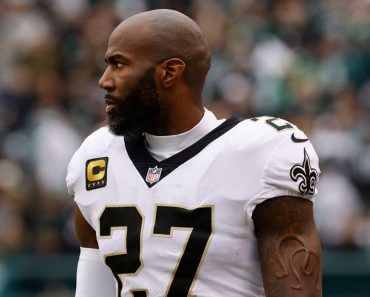[ad_1]
“You won’t win a negotiation if you’re not willing to get up from the table,” he told the outlet. “If you’re not willing to leave, then you’ll take whatever they give you, respect yourself enough to understand how things move. Put your foot down where you need to and how to value yourself and bet on it. But it’s scary to bet on yourself.”
Jenkins also chose to bet on himself when it came to his investments in stocks, bonds, and real estate.
“A financial advisor will tell you the only way you’ll make money is in a stock market,” he explained to WHYY News.
However, Jenkins believes the “difference between being rich and wealthy” is that “the wealthy invest in private equity deals and real estate,” the outlet said he also noted.
With that in mind, Jenkins’ first business investment would be made with a credit line of nearly $1 million to purchase an apartment building in Ohio.
“I jumped in front of the line [of offers] because I was the only one who could pay in cash [from the bank as opposed to a mortgage],” he recalled, according to WHYY News. “The building was fully occupied so it immediately cash flowed and paid for itself. I remember asking my financial adviser — Is this legal? I just bought a million-dollar building and now I own it. I didn’t pay a single dime for it, that just seemed crazy to me.”
Wising up in the business world was necessary for Jenkins, especially since he had a revelation early on in his career that he would suffer financially once his rookie contract with the New Orleans Saints was over in 2013.
“The harsh reality I had is that I would be broke probably in five or 10 years,” Jenkins told CNBC Make It in 2021. “So for me, it’s been a journey to learn how to not only save your money, how to plan, how to budget but also how to grow your money.”
At the time, he also added, “Lucky for me, I’ve been in this league long enough where I’ve been able to make enough money to withstand the mistakes that I’ve made.”
During the two-time Super Bowl champion’s 12-year career, he earned $70 million in salary and bonuses, per CNBC Make It. He would walk away from a $6 million contract when he made his exit from the league in 2022, as AFROTECH previously reported.
“A lot of us want to focus so much, like all our time on our sport, but you realize that the sport — once they are done with you they will kick you to the curb and then you’ll start to try and build your own life,” Jenkins explained to WHYY News. “And all of the support — people patting you on the back, everybody wants to help you, your social capital all of that — just steadily declines after you’re [done] playing.”
His portfolio also includes ventures in media, apparel, tech, restaurants, and real estate. Additionally, he’s the founder of Broad Street Ventures, a $10 million investment fund composed of mostly Black and brown investors and some NFL athletes.
“I hope that we are setting a new trend for people who look like us to start to pull that money together to sit in those seats of ownership and to collaborate with the deals,” Jenkins told AFROTECH. “Because what makes our funds special is that one, it’s Black-led, but it also still has the top quality deals that are out there. It’s not just doing business with your own people. We’ve figured out through our networks how to get aligned with those great deals and still keep our leadership and equity. It’s just about living that example and hopefully others who look like us see it, recognize it, and follow it.”
[ad_2]
Source link
